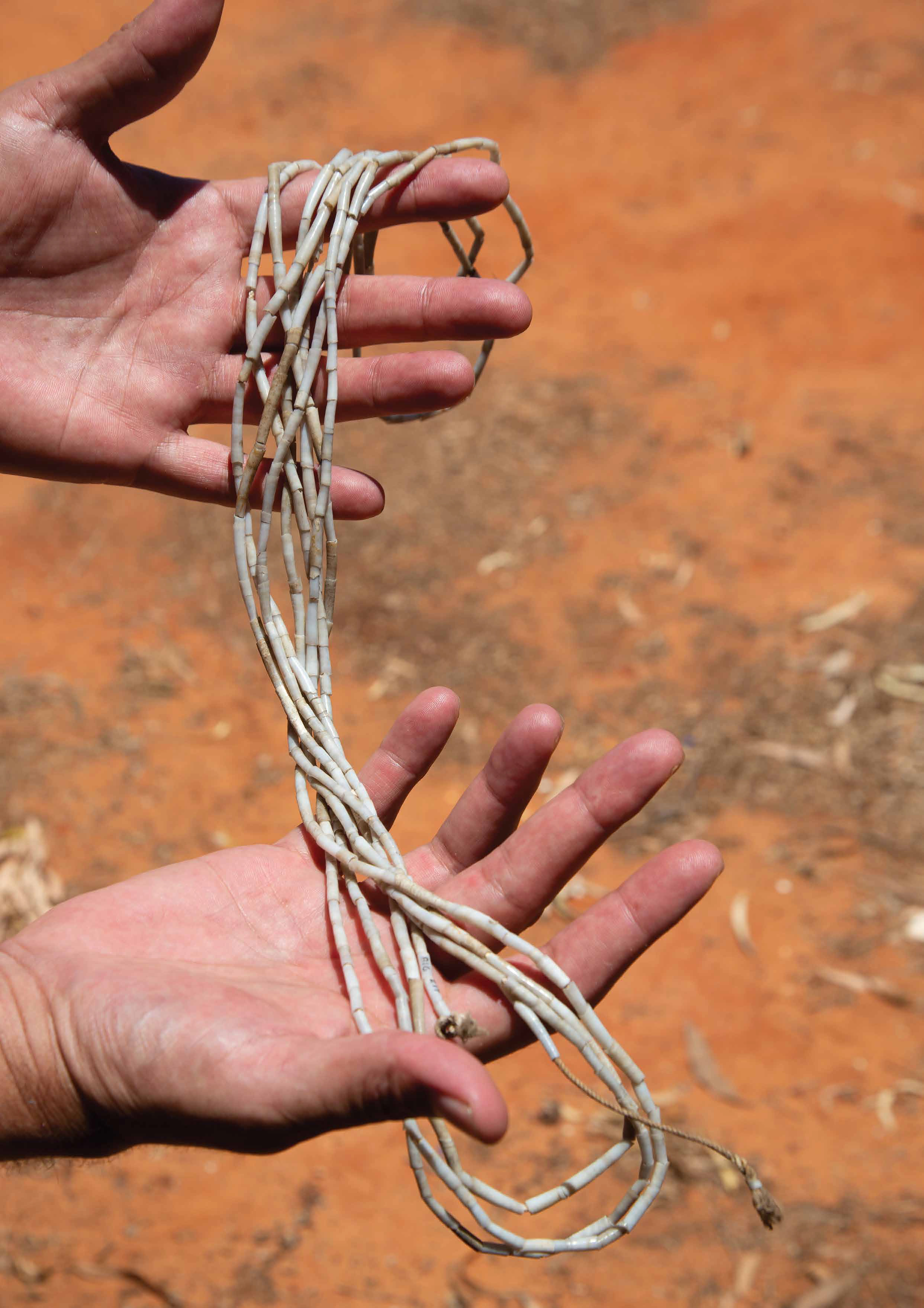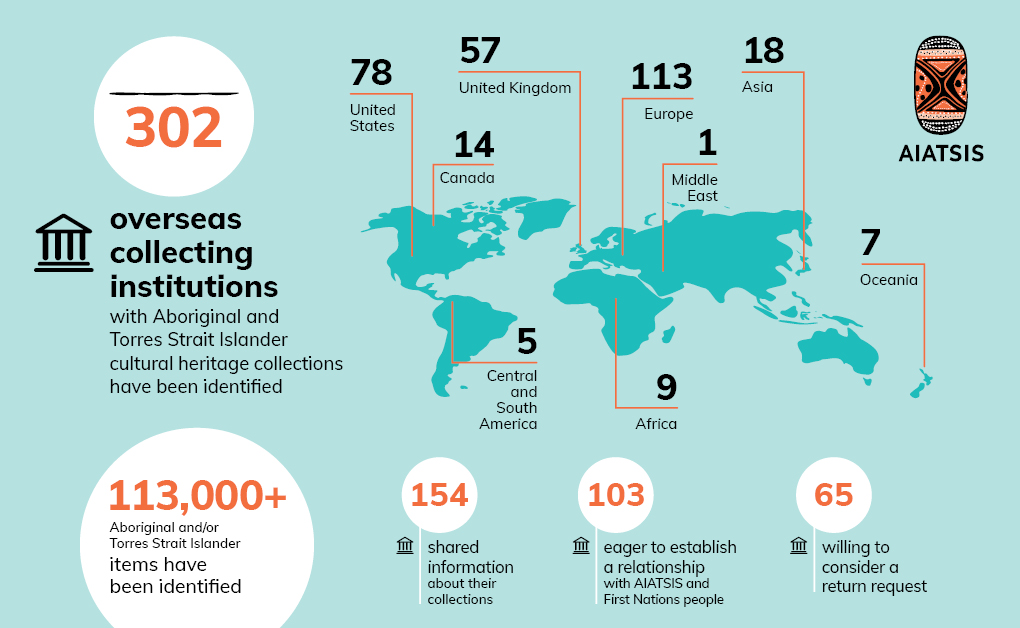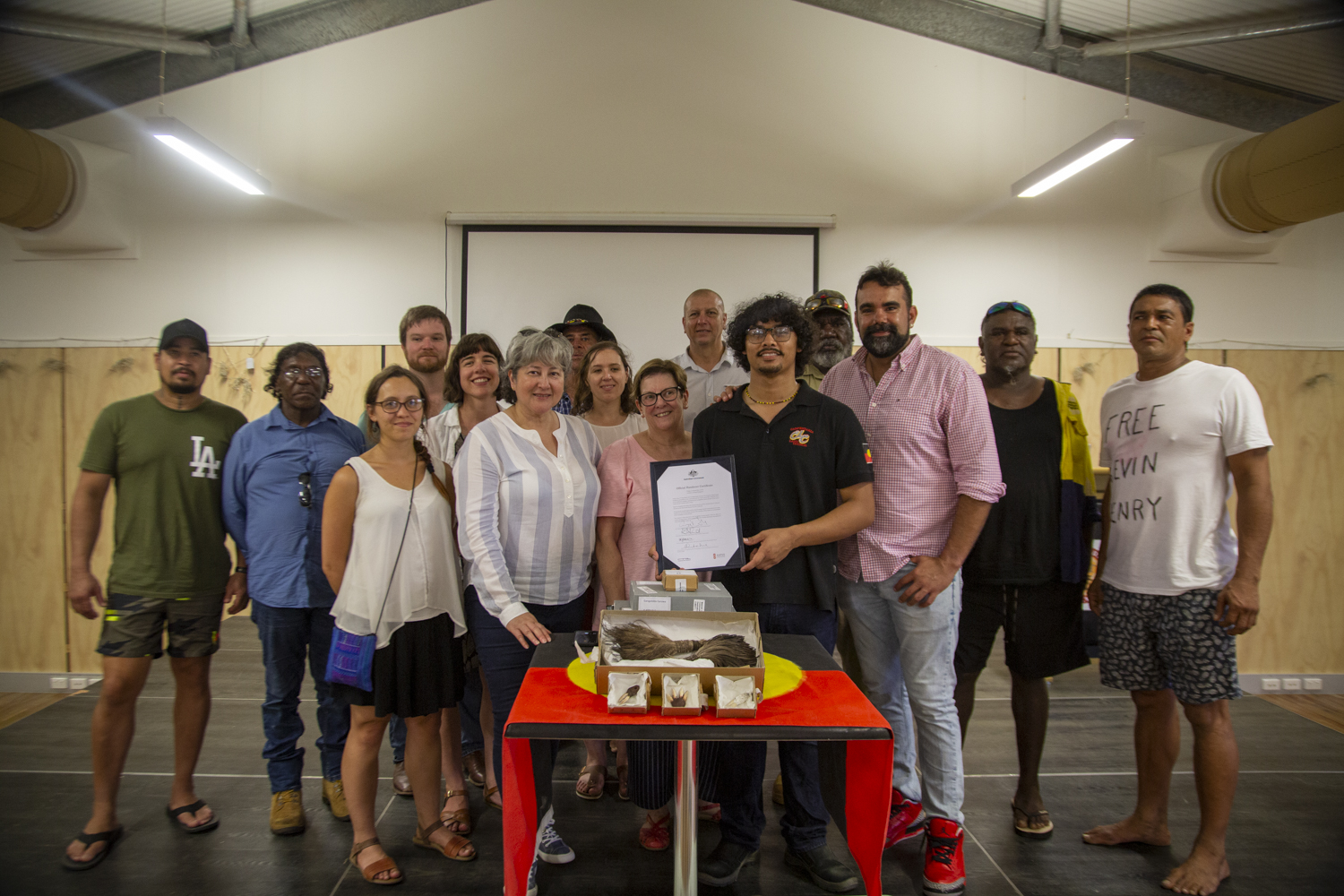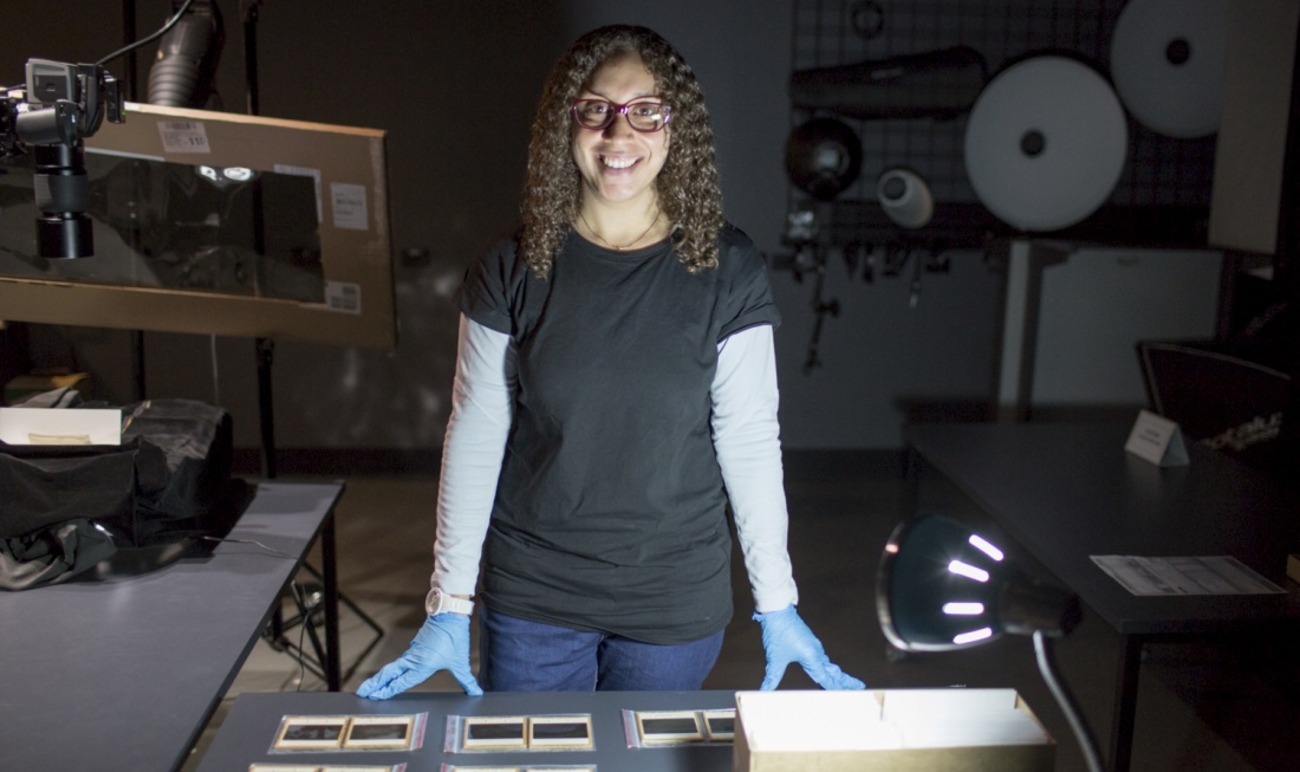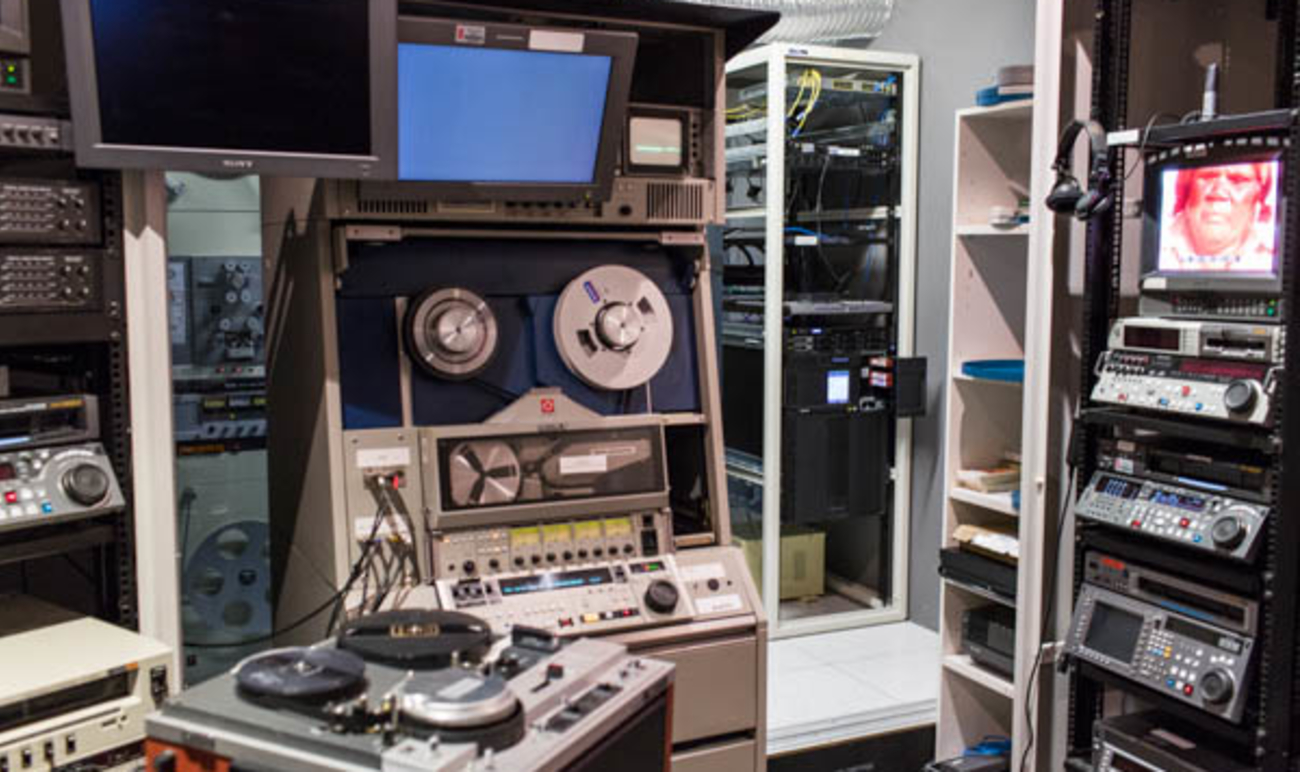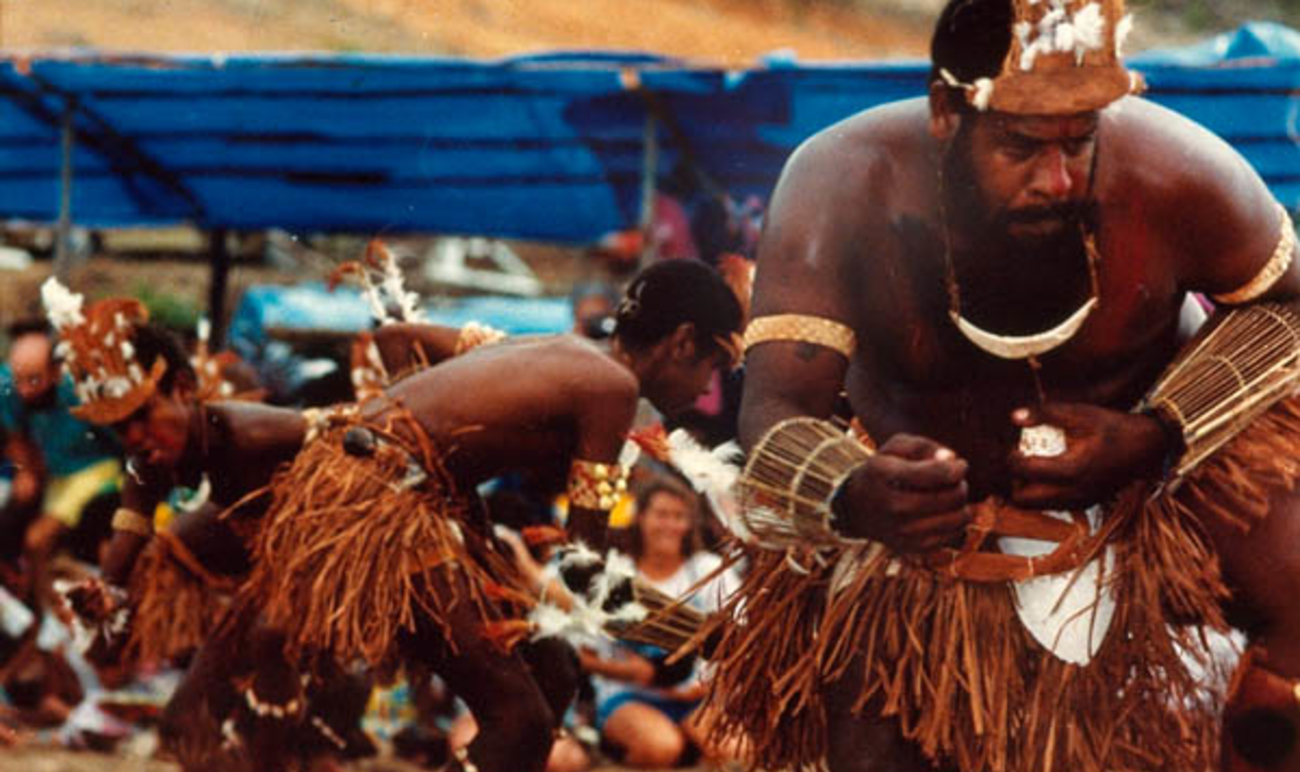The Return of Cultural Heritage Project is an AIATSIS led project working in partnership with First Nation’s communities around Australia.
It is funded by the Australian government as a scoping project that will run until 30 June 2020, and is one of a suite of initiatives to mark the 250th anniversary of Cook’s first voyage to the east coast of Australia.
It strengthens the signal both to Australia and globally that Aboriginal and Torres Strait Islander culture is respected, celebrated and valued and is also part of a larger narrative seeking to support the cultural resurgence of Australia’s Aboriginal and Torres Strait Islander peoples.
The discussions around museum and other cultural heritage collections, in the context of 'decolonising the museum', is growing in volume and significance and many Indigenous communities worldwide are working towards the return of these precious items, with their inherent cultural knowledge, back home.
The project aims not only to explore and facilitate the return of cultural heritage objects, including audiovisual and documentary heritage, but will document the breadth and depth of material held by overseas collecting institutions, developing an appropriately accessible database that will be a legacy of the project.
As well, and very importantly, it will seek to build relationships between overseas collecting institutions, AIATSIS and Aboriginal and Torres Strait Islander communities.
The project team has so far discovered over 200 overseas institutions holding Australian First Nation’s cultural heritage material, and has contacted all but 12 of those.
Of these, many have been openly willing to engage with the project, which eventually narrowed this wealth of possibility to two pilots: Illinois State Museum (US) and Manchester Museum (UK), which are, between them, returning items to 5 language groups. All communities welcome their return.
The Illinois State Museum return was successfully completed in October, 2019. An official handover ceremony was conducted at Springfield, Illinois to repatriate 42 culturally significant objects from its collection back to Aranda and Bardi Jawi Nations. Community ceremonies have since welcomed the objects back to Country in Central Australia and the Kimberley.
“We’re excited and happy that the Bardi material is coming home and believe that this is the right thing to do. These items were taken a long time ago but we’re glad that the museum looked after them and are now retuning them back to the rightful tribe. Other important things are missing too and a lot more work needs to be done, and we’re glad it’s happening. We’d like to thank the Australian Government for their help.”
The first Manchester Museum return took place at the end of November, 2019 at Australia House in London, and another will happen in March 2020, with an unconditional return of 43 culturally significant objects from the Museum’s collection directly back to Aranda, Gangalidda Garawa, Nyamal and Yawuru Nations.
Below are statements from the communities whose materials has already been returned from the Illinois State Museum and Manchester Museum.
“We cannot fix the past only the future, so this is the start of closing those small gaps of what has been taken from us. So we as Aboriginal people can heal and build that trust to work together and educate ourselves to build a better future as one.”
“The repatriation of our sacred cultural heritage items is a fundamental part of the healing and reconciliation process, both within our communities and between our mob and the State. Bringing these sacred cultural heritage items back to Country is important and necessary for the purpose of cultural revitalisation – because locked deep within these items is our lore; our histories, our traditions and our stories.”
Many of the items returned will be used in ceremonies over the coming months and years.
“As one of the ceremonial leaders of Central Australia, I am, on behalf of the senior ceremonial Elders of Central Australia and beyond, very happy to hear and see that the artefacts will be coming back to the original beds and caves where they will sleep for the rest of their time. It will bring back power and strength for our Dreamtime constitution. The men of the desert will be very grateful for the objects returning back home.”
Read more about the Return of Cultural Heritage Project.
